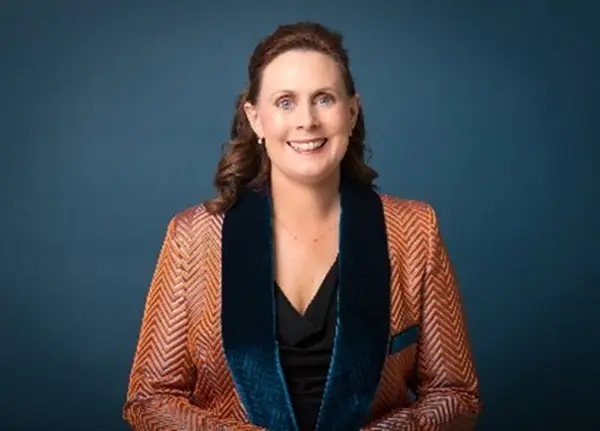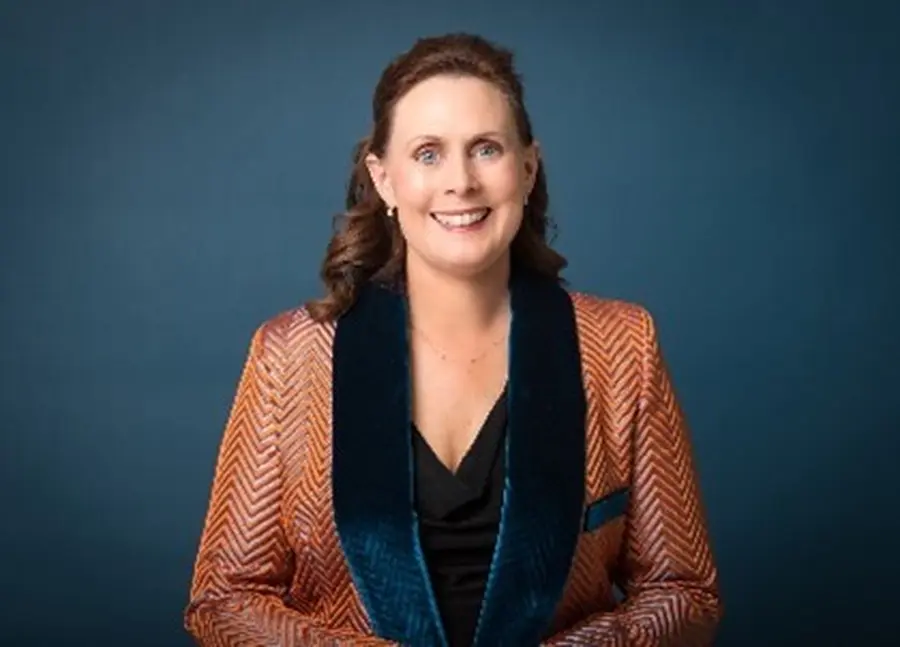
Caroline Reidy, Managing Director of the HR Suite and HR and Employment Law Expert. Caroline sold her company, The HR Suite, in 2025 to NFP, an AON Company, but continues to work in the HR Suite as Managing Director. Caroline is a former member of the Low Pay Commission and is also an adjudicator in the Workplace Relations Commission. Caroline is also an independent expert observer appointed by the European Parliament to the Board of Eurofound. Caroline is also on the Board of the Design and Craft Council Ireland and is a Governor on the Board of Munster Technology University.
She has also completed a Master's in Human Resources at the University of Limerick, she is CIPD accredited as well as being a trained mediator. Caroline completed her diploma in Company direction from the IOD with a Distinction and completed her assessment to become a Chartered Director of the IOD. Caroline had worked across various areas of HR for over 25 years in Kerry Group and in the retail and hospitality sector, where she was the Operations and HR Director of the Garvey Group prior to setting up The HR Suite in 2009. She has also written 2 books, has done a TEDx and is a regular conference speaker and contributor to national media and is recognised as a thought leader in the area of HR and employment law. Caroline also mentored female entrepreneurs on the Acorns Programme. Originally from Ballyheigue, Co. Kerry, living in Dublin is very proud of her Kerry roots.
“It is not always the people who start out the smartest who end up the smartest” (Bill Gates)
Have you ever asked yourself, do I have a fixed mindset or do I have a growth mindset? Which one is better? How important is it to my professional role and my career development?
Mindset has been defined as the established set of attitudes and assumptions held by an individual, that exist in their subconscious mind and determines how that person perceives specific situations and reacts to them (Herbert 2000). The basic concept of individual difference comes from the idea that no two persons are the same. The most obvious can be seen in physical differences by means of height, weight, hair colour etc. which can be objectively measured.
In research carried out by Carol Dweck, it is suggested that a person’s behaviour, affect and cognition can be shaped using theories of intelligence to organise and characterise a particular setting. For example, in a recruitment and selection process, it can help to identify desired traits as well as knowledge, skills and abilities that will help to select the most suitable candidate for a specific role.
In further research it was established that the concept of mindset can be viewed from two perspectives: that of fixed mindset or growth mindset. A person’s belief or viewpoint on intellectual ability can lead people to question their capabilities when they encounter setbacks. This could potentially result in them becoming either demotivated orenergised when they encounter difficulties. If you have a fixed mindset, you believe you are born with an innate ability and this cannot be changed by either effort or education throughout a person’s lifetime. People with fixed mindsets often feel they need to stick to what they know as they wish to appear knowledgeable and smart in their more specific areas of expertise. If you have a growth mindset the belief that intelligence is expandable throughout our lifetime as people become more open to knowledge, more willing to confront challenges and are generally more resilient. People with a growth mindset embrace challenge and setbacks, using them as opportunities for learning rather than indicators of failure.
Research by Conger in 2004 suggests that it is a combination of innate factors, such as our life, family and school experiences that set the foundation for good leaders while other factors can be learned, coached or aligned to growth mindset. Some researchers suggest that the basic assumptions that people make about a person’s intelligence or personality reflects their mindset. An individual’s perception of what success or failure looks like may also impacted by the type of mindset they have. Why will this help you as a Manager? It is suggested that having a growth mindset can significantly boost motivation, enhance achievement and can help prevent negative stereotypes from undermining achievements.
Hamilton(2011) found that an employee’s performance could be affected when dealing with varied tasks and thus they had to switch mindsets in order to complete them. It suggests that an employee who transitions between jobs or tasks that require taking different perspectives may be less able to self-regulate, potentially leading to negative organisational consequences, including lower levels of persistence, focus, and patience with co-workers.
A growth mindset in an organisational setting encourages employees to view challenges as opportunities to improve themselves. It also promotes the idea of raising the bar once we reach our goals as there is always scope to achieve more.
Based on organisational surveys it is often found that people who work in ‘growth mindset organisations’ have a much higher level of engagement and trust. However, while growth mindset encourages risk taking and embracing challenge rather than overcoming obstacles there is a limit where the level of risk taking must be reasonable and measured. The organisations with fixed mindset very specifically match high levels of talent to specific roles but often do not encourage innovation and calculated risk taking within the organisation.
The organisations who strike the balance between both mindsets or find that sweet spot which matches talent meaning getting the right person into the right role while remaining realistic on goal setting and role development are often the most successful. It is widely accepted that successful leaders will always require vision to assist them in measuring risk and looking out on top to steer the ship and avoid stormy waters. A growth mindset is therefore probably more sought after when organisations seek to identify potential leaders both inside and outside their organisations.
Our expert team of HR Consultants at The HR Suite can advise you how to assess the mindset within your organisation and start the conversation. If you are an organisation based in the Republic of Ireland and require further information or advice relating to HR, please do not hesitate to contact our office on (066)7102887 or email info@thehrsuite.com.
Continue reading
We help hundreds of people like you understand how the latest changes in employment law impact your business.
Please log in to view the full article.
What you'll get:
- Help understand the ramifications of each important case from NI, GB and Europe
- Ensure your organisation's policies and procedures are fully compliant with NI law
- 24/7 access to all the content in the Legal Island Vault for research case law and HR issues
- Receive free preliminary advice on workplace issues from the employment team
Already a subscriber? Log in now or start a free trial
